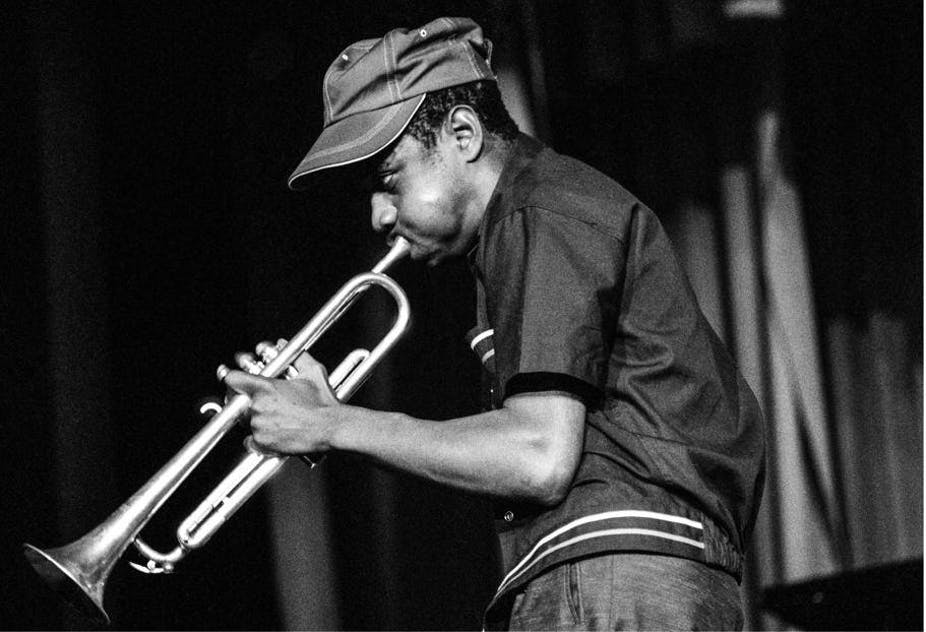Remembering the Blue Notes: South Africa’s first generation of free jazz by Gwen Ansell, 11 September 2017
“We were all kind of rebels,” drummer Louis Tebogo Moholo-Moholo recalls, “so, like birds of a feather, [we] flocked together.”
He’s talking about the Blue Notes, a multiracial modern jazz outfit formed in Cape Town in the early 1960s. White composer and pianist Chris McGregor joined forces with some of the most radical young black players on the city’s scene: alto saxophonist Dudu Pukwana, tenor saxophonist Nikele Moyake, trumpeter Mongezi Feza, bassist Johnny Mbizo Dyani and Moholo-Moholo, the only original Blue Note still alive and working.
What lost photos of Blue Notes say about South Africa’s jazz history by Lindelwa Dalamba , 14 October 2019

In 1964 a young South African student and photography enthusiast, Norman Owen-Smith, took his Leica camera along to a jazz concert at the then University of Natal Pietermaritzburg’s Great Hall and captured a series of black and white images of the band, the Blue Notes.
Through the intervention of jazz scholars, these photos have been printed, restored and exhibited, years after the band became iconic.